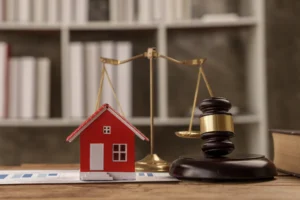Gas leaks in stoves are not only a safety hazard but can also lead to significant damage or worse, catastrophic accidents. Ensuring that your gas stove is free from leaks is crucial for the safety of your home and everyone within it. Whether you’ve noticed a strange smell or suspect something is wrong, it’s essential to know how to detect and fix gas leaks as soon as possible.
In this detailed guide, we’ll walk you through the process of identifying gas leaks, the safety measures you should follow, and the steps you can take to fix the problem. This guide will help you become more confident in maintaining a safe cooking environment, and we’ll also provide helpful tips to avoid further risks.
How to Detect Gas Leaks in Your Stove
Detecting a gas leak in your stove can be challenging without the right knowledge, but it’s crucial to remain vigilant. If you suspect a gas leak, there are several signs you can look for:
Smell of Gas: The most common indicator of a gas leak is the distinctive smell of gas. Natural gas has an additive called mercaptan, which gives it a strong, sulfur-like odor. If you smell gas near your stove, it’s vital to act immediately.
Hissing Sound: If you hear a hissing noise coming from your stove or any gas appliance, it could indicate that gas is leaking. The sound may be faint but should never be ignored.
Physical Symptoms: Gas leaks can cause health symptoms such as headaches, dizziness, nausea, and fatigue. If anyone in your home experiences these symptoms while near the stove, it could be due to a gas leak.
Dead or Yellowed Vegetation: If there’s vegetation near your stove or gas lines that seems to be dying or turning yellow, this could indicate a gas leak, as gas can displace oxygen in the area and prevent plant life from thriving.

Step-by-Step Instructions for Fixing Gas Leaks in Your Stove
Once you’ve detected a potential gas leak, The JVC Tech Location it’s crucial to act quickly and safely. Follow these steps to detect and fix the issue, but if you’re uncertain or uncomfortable with the repair process, don’t hesitate to call a professional.
Turn Off the Gas Supply
Your first priority is to stop the flow of gas. Turn off the gas supply to your stove immediately. Most gas stoves will have a shut-off valve located near the appliance. If you can’t find the valve or if you’re unsure how to turn it off, locate the main gas supply valve for the entire house and turn it off.
Ventilate the Area
Once the gas is turned off, open all windows and doors to allow fresh air to circulate throughout the area. This helps disperse any gas that may still be present in the air. Avoid creating sparks, so don’t use any electrical appliances or light switches while ventilating.
Check for the Leak Using Soapy Water
One of the easiest methods to find a gas leak is by using soapy water. Mix a small amount of dish soap with water and apply it to the gas connections or the hose connected to your stove. If you see bubbles forming, this indicates a leak. This method is safe and can help you pinpoint exactly where the leak is occurring.
Tighten Loose Connections
If you’ve identified a small leak around a connection or hose, try tightening it carefully with a wrench. Ensure that the connection is secure, but avoid overtightening, as this can cause damage to the fitting or the hose. After tightening, repeat the soapy water test to check if the leak persists.
Replace Damaged Components
If you notice a damaged hose or connector, it’s best to replace it entirely. Replacing faulty parts is crucial because even small cracks or wear can result in a significant gas leak. Make sure to use components that are specifically designed for your stove model to ensure safety and proper function.
Test for Leaks Again
Once you’ve made the necessary repairs, it’s time to test the stove again for leaks. Apply the soapy water solution to all connections and watch for bubbles. If you find no bubbles, the leak has been fixed. If the leak persists, it may be time to consult a professional for further assistance.
Common Causes of Gas Leaks in Stoves
There are several reasons gas leaks occur in stoves. Here are some common causes:
- Worn-out hoses: Over time, the rubber hoses that connect the stove to the gas line can wear out and crack, leading to leaks.
- Loose connections: Gas fittings and connectors can become loose after prolonged use, allowing gas to escape.
- Faulty valves: If the shut-off valve is damaged or malfunctioning, it can lead to leaks or difficulty turning the gas supply on and off.
- Old stove models: Older stove models may be more prone to gas leaks due to wear and tear, so it’s essential to maintain them properly or consider upgrading to a more reliable and efficient model.
When to Call a Professional for Gas Stove Repair
If the leak persists despite your best efforts to fix it, or if you feel unsafe handling the situation yourself, it’s essential to call a professional. A technician who specializes in gas stove repair in Jumeirah can inspect your stove, identify the cause of the leak, and ensure that the necessary repairs are done safely and effectively. You can rely on The JVC Services Providers to handle any gas appliance issues promptly and professionally.
Preventing Gas Leaks in the Future
While detecting and fixing gas leaks is essential, prevention is key to maintaining safety in your home. Here are a few tips to help you avoid future leaks:
- Regular inspections: Have your stove and gas lines inspected regularly by a professional to identify potential issues before they become serious problems.
- Replace old components: Replace hoses, connectors, and other parts regularly to avoid wear and tear that could lead to leaks.
- Avoid DIY fixes: Gas lines and appliances are complex and can be dangerous if mishandled. Always consult with a professional for major repairs or installations.
By staying on top of maintenance and knowing how to handle leaks when they occur, you can significantly reduce the risk of accidents and ensure your stove operates safely.
If you suspect a gas leak and need immediate assistance, don’t hesitate to reach out to gas stove repair in Jumeirah for prompt and reliable service.
Related FAQs:
1. How do I know if my stove has a gas leak?
The most common signs of a gas leak include a distinctive sulfur-like smell, a hissing sound near the stove, or symptoms like headaches or dizziness. If you experience any of these, it’s essential to act quickly and check for a leak.
2. Can I fix a gas leak on my own?
Minor leaks in fittings and hoses can be fixed by tightening or replacing the components. However, if you’re unsure or the leak persists, it’s best to consult with a professional gas stove repair technician.
3. Is it dangerous to ignore a gas leak in a stove?
Yes, gas leaks are highly dangerous. They can lead to fire hazards, explosions, or carbon monoxide poisoning. Always take gas leaks seriously and address them immediately.
4. How can I prevent gas leaks in the future?
Regular maintenance, including inspections and timely replacement of old components, can help prevent gas leaks in your stove. Avoid DIY fixes unless you are experienced in handling gas appliances.










